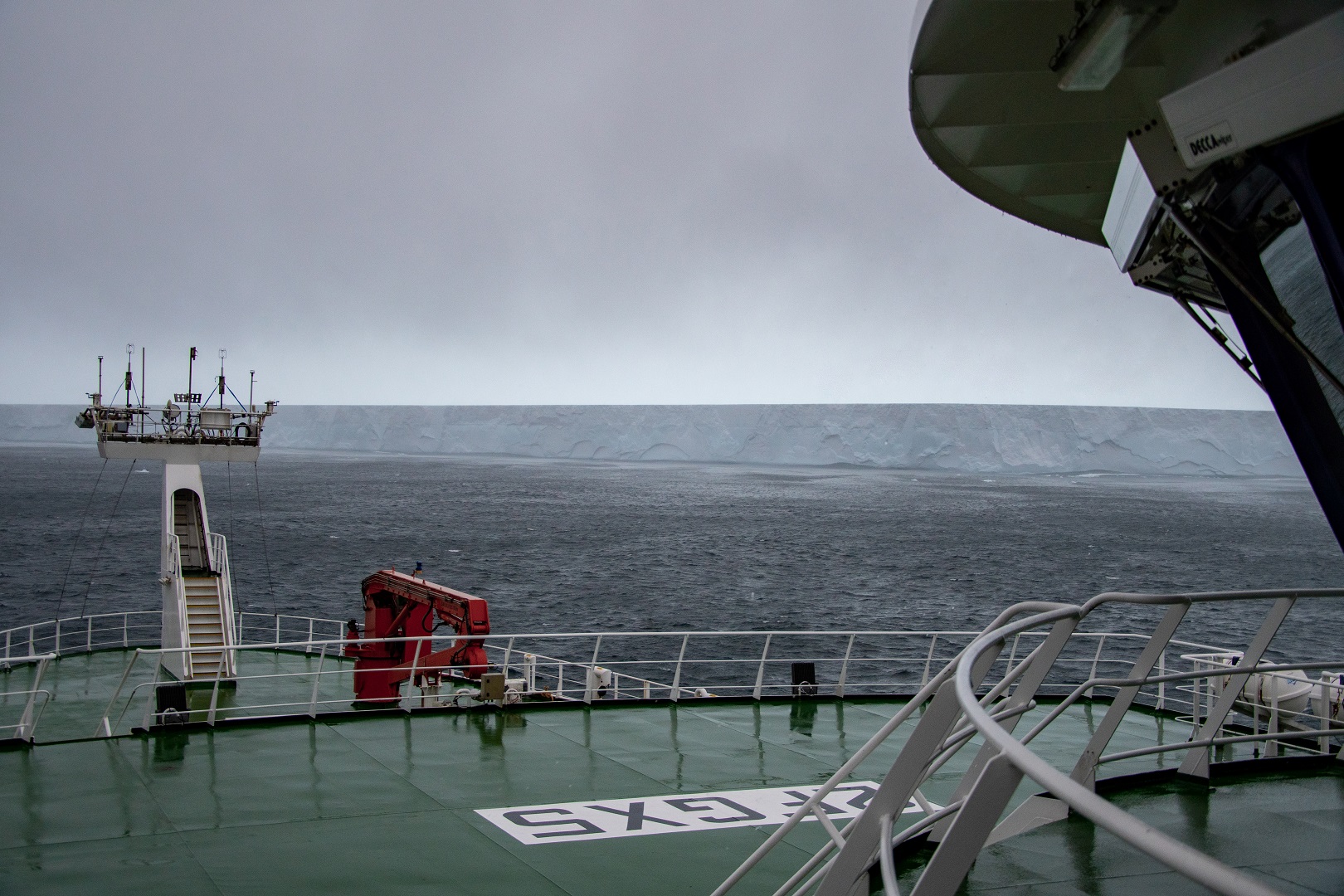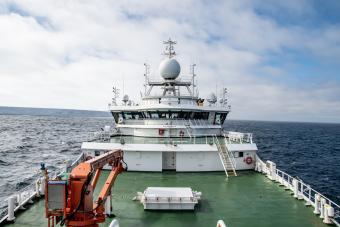- The National Oceanography Centre (NOC) is set to manage multiple international world leading science research expeditions in 2023.
- Recent expeditions include the DY158 expedition which circumnavigated the A76a megaberg.
- The RRS Discovery and RRS James Cook provide first class facilities to global research institutions.
The National Oceanography Centre (NOC), is paving the way in international science research management through its team of industry leading experts.
NOC, home to RRS James Cook and RRS Discovery, is managing 31 global research missions in 2023, providing a wealth of support for international research institutions.
This will include missions to the Bay of Biscay where NOC’s Marine Autonomous Robotic Systems team will be trialling its fleet of AUV’s and gliders to test autonomous ocean research capabilities, an expedition to quantify deep sea ecosystem resilience in the Pacific, and a research mission to Norway to study the role nitrogen plays in Arctic biogeochemistry.
These include the DY158 expedition which took place earlier this year and circumnavigated the A76a megaberg and last year where the team sailed out to the Thwaites Glacier in Antarctica with renowned autonomous underwater vehicle, popularly known as Boaty McBoatface.
The DY158 expedition to the Southern Ocean with British Antarctic Survey (BAS), saw the NOC supply 22 NOC crew plus 6 NOC technicians to provide underwater sensor technology and facilitate data gathering, whilst BAS provided the scientific expertise to understand the long-term variability in krill biomass and the influences from climate variability, fishing pressure and predation.
NOC is world renowned for its research ships the RRS Discovery and RRS James Cook, providing first class facilities to global research institutions. Onboard the ships at any time the NOC provide up to 17 technicians and 22 crew members to support the delivery of science. 
NOC undertakes extensive work to supply equipment to fulfil the objectives of science institutions across the globe, assigning fully trained technicians to ensure that vessels are operated by appropriately trained and experienced personnel - from the Captain to the Chef.
Jon Short, Senior Project Manager at the National Oceanography Centre, said: “We ensure that the vessels are capable of performing the science operations required for all research missions, alongside certifying the required equipment and operating state of the art technology safely, efficiently and optimally.
"NOC’s involvement in circumnavigating the A76a iceberg highlights the key role the National Oceanography Centre's technicians, alongside the captain and crew on board the RRS Discovery, play in providing data to support important scientific research expeditions.”
NOC’s pioneering technological equipment supports ocean research missions, including sampling instruments which provide real time data from the sea surface, collating data relating to temperature, salinity, and fluorescence, which are used to validate weather and climate models. Alongside this, NOC provide real time atmospheric data, such as air temperature, wind speed and direction, and light measurements.
Short continued: “This kind of data collection is the fundamental backbone of all science research and forms the basis of the vast majority of papers that will come out of this or any other research cruise.”
Eleanor Darlington, Head of Marine Facilities Programmes at NOC, said: “The ships we operate are integral to the world’s capabilities in ocean science, and one of the ways we showcase our dedication to the field of ocean research is by partnering with UK businesses to provide safe and ground-breaking operations to help us harness the value of the ocean, as well as protect and restore it.”
Research Ships
Our ships are built to carry out oceanographic research in the most extreme and remote oceanic environments on planet Earth. Take a virtual ship tour to explore two of the world’s most advanced research vessels from the bridge to the engine room.

